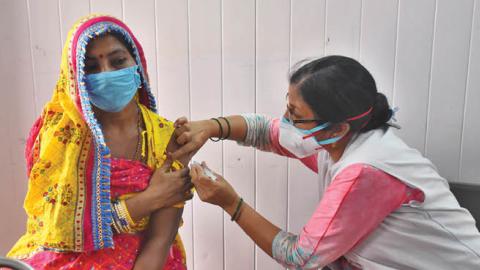The recent surge of COVID-19 in South Asia challenges India’s traditional ability to aid its smaller neighbors, a change that could, in turn, affect India’s influence in its competition with China. Unless India can recover from this surge with the help of allies like the United States, the pandemic could impact the Indo-Pacific’s geopolitical balance.
In the past, India has often acted as a first responder across South Asia, helping other countries recover from natural disasters, and it initially occupied this role during the first months of the coronavirus pandemic, when it helped several South Asian and Indian Ocean region countries cope with the effects of the disease. India’s role as ‘first responder’ has been a key factor in its geopolitical power and in maintaining its role as a leader in the region.
However, the resurgence of COVID-19 has jolted India at a time when democratic countries, including the United States, view India as critical to balancing China’s deepening influence cross Asia. South Asia, a region holding 23 percent of the world’s population, now accounts for over 11 percent of global COVID-19 cases and 6 percent of COVID-related deaths. The world’s largest democracy and second-most populous country, India alone currently accounts for over 84 percent of South Asia’s cases and deaths.
For most of 2020, it appeared that India, thanks partly to a lockdown, had managed to avert a huge health crisis. During this time, India supported its immediate South Asian neighbors by supplying personal protective equipment and medications. However, the latest COVID-19 surge has created a crisis that has strained the Indian health infrastructure’s ability to meet.
With more resources being diverted towards domestic ends, India’s ability to maintain friends and influence other countries has diminished, also potentially shrinking its sphere of influence. The US must therefore go beyond dealing with its own health crisis and also support India in dealing with its crisis. Instead of allowing China to consolidate its positions in Pakistan, Sri Lanka, Bangladesh, Nepal, and the Maldives, helping India restore its ability to provide assistance would be in the best interests of the United States and its allies.



















